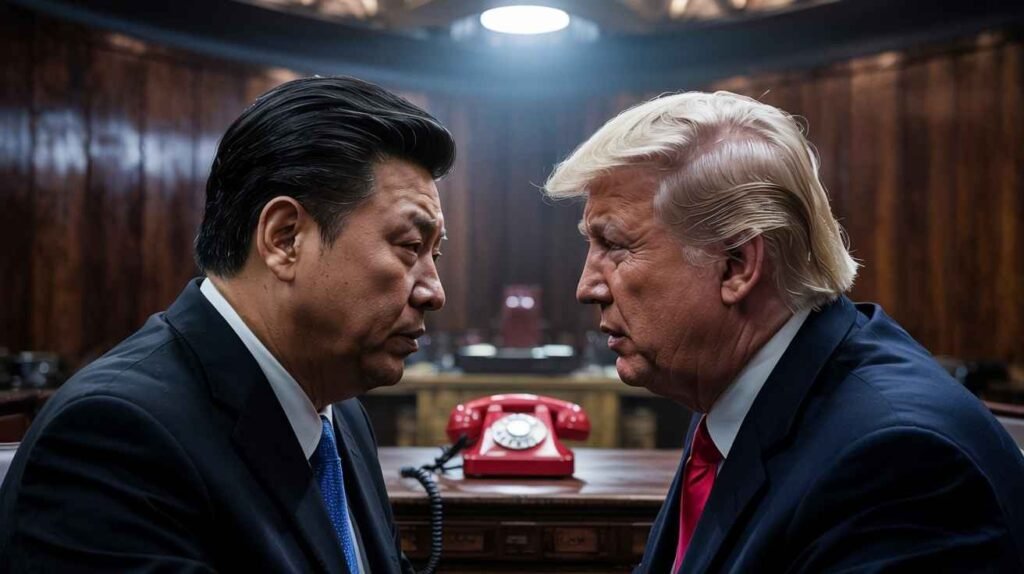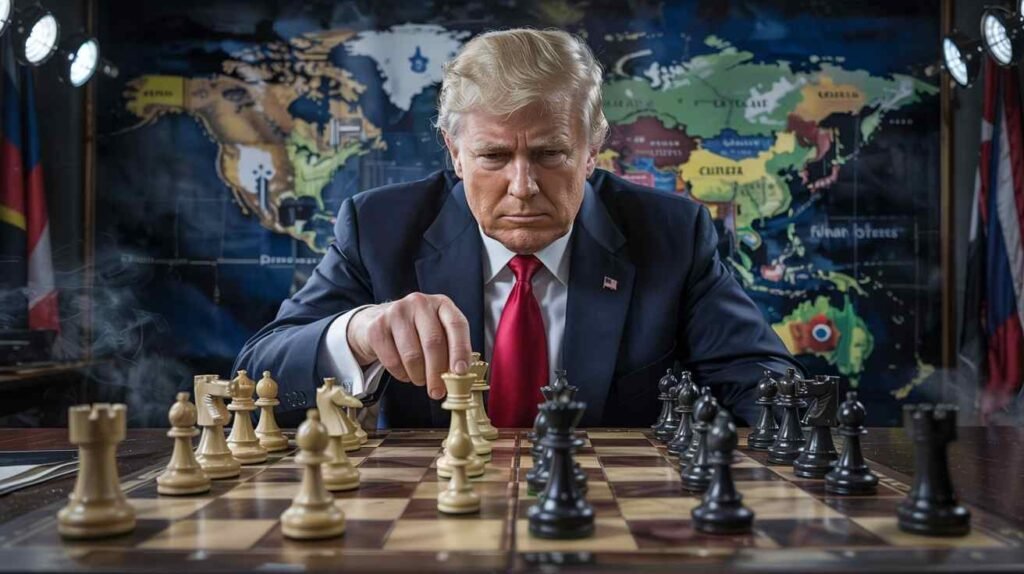
The global markets are in absolute chaos right now, and I can’t remember the last time I’ve seen volatility this extreme. What we’re witnessing isn’t just another economic hiccup – it’s potentially the beginning of something that could fundamentally reshape global trade dynamics for decades to come.
Tariff Tennis: The Dangerous Game Nobody Wins
In just the past 48 hours, we’ve seen moves and countermoves that would make even the most seasoned chess grandmasters dizzy. China’s retaliation with 84% tariffs in response to Trump’s eye-watering 104% tariffs feels less like economic policy and more like schoolyard one-upmanship – except the playground is the entire global economy.
The currency markets tell a fascinating story that mainstream media often misses:
- Emerging market currencies are getting absolutely hammered. It’s a bloodbath across the board as investors flee risk in favor of perceived safety.
- Reserve currencies paint a completely different picture. While you might expect the dollar to strengthen universally during uncertainty, it’s actually losing ground against other major currencies like the euro, pound sterling, and Japanese yen. This unusual divergence suggests something deeper is happening beneath the surface.
Trump’s Global Trade Chess Match
US Treasury Secretary Scott Bessent is playing the PR game hard, claiming that roughly 70 countries are lining up to negotiate with the United States. Japan appears to be the first major player willing to sit at the table as part of what Trump grandiosely calls “the golden era of global trade.”
Let me be blunt: when someone promises you a “golden era,” check if your wallet is still in your pocket.
The European Union, through Ursula von der Leyen, extended what seemed like a genuine olive branch by signaling willingness to potentially eliminate all EU tariffs. Trump’s response? Not good enough. In classic Trump fashion, he moved the goalposts, insisting that non-tariff barriers must also go and – here’s where economists everywhere facepalm – that the US trade deficit with the EU must be reduced.
Look, I’m all for free trade. Reducing tariffs? Great. Eliminating non-tariff barriers? Fantastic. But this obsession with bilateral trade deficits reveals either a fundamental misunderstanding of economics or a negotiating tactic so aggressive it risks alienating potential allies. Either way, it’s dangerous.

The Isolation Strategy: Brilliant or Backfiring?
What’s becoming increasingly clear is the Trump administration’s strategy: unite America’s allies against China, then approach Beijing as a unified bloc to force concessions.
In theory, not terrible. In practice? Trump is simultaneously antagonizing the very allies he needs for this strategy to work. Just yesterday, at a Tuesday night event, Trump boasted about foreign leaders “kissing his ass” and “begging for a deal.” This isn’t just unpresidential – it’s diplomatically suicidal.
Meanwhile, internal conflicts are boiling over. Elon Musk publicly called Trump advisor Peter Navarro (one of the most hardline protectionists in the administration) “dumber than a bag of bricks.” Former Trump supporter and billionaire investor Bill Ackman has gone from cheerleader to critic, practically begging for an end to the tariff escalation.
Markets in Meltdown Mode
The real-world impacts are already appearing. Companies are canceling Chinese orders en masse. Investments are being suspended. JPMorgan’s Jamie Dimon is now openly predicting recession as the likely outcome of this tariff tantrum.
What truly has me concerned is what’s happening in the bond market. US Treasury yields have gone parabolic after initially falling. The 10-year Treasury yield surged past 4.40% after dipping below 3.90% just days ago. The 30-year approached a stomach-churning 5% overnight.
This isn’t normal market movement – it’s panic. The so-called “basis trade” (an obscure but massive arbitrage strategy employed by hedge funds) is unwinding violently. When these highly leveraged positions collapse, they create ripple effects that can quickly become tsunamis in interconnected global markets.
The Breaking Point Nobody’s Talking About
In a stunning 11th-hour development that perfectly illustrates the chaos, Trump announced on his social network: “Based on China’s lack of respect shown to world markets, I am increasing the tariff charged to China by the United States of America to 125%, effective immediately.”
In the same breath, he offered a 90-day pause with a reduced 10% reciprocal tariff to the 75+ countries that have approached the US to negotiate – essentially isolating China even further.
The market reaction was instant and massive. Stock futures that had been deeply negative suddenly soared. The S&P 500 jumped nearly 7%, NASDAQ over 7%. Extreme volatility doesn’t even begin to describe what we’re seeing.
My Take: We’re Playing With Fire
Let me be perfectly candid: I’m deeply concerned about where this is heading. Trump’s “art of the deal” approach to global trade might make for good television, but economies aren’t reality shows. You can’t just fire a country and move on to the next episode.
The strategy appears to be: isolate China, form a united front with other trading partners, then force Beijing to capitulate. But by antagonizing allies with crude language and impossible demands, Trump is undermining the very coalition he needs to build.
What’s worse, the basis trade unwinding in the Treasury market indicates that something fundamental could be breaking in our financial system. When the supposedly safest asset in the world (US government debt) experiences this kind of volatility, red lights should be flashing everywhere.
Will China respond to Trump’s latest 125% tariff escalation with yet another round of retaliation? If so, we may cross a point of no return where pride and politics override economic self-interest on both sides.
My prediction: unless cooler heads prevail quickly, we’re heading for a recession that will make 2020 look like a warm-up act. The interconnected nature of global markets means that when giants like the US and China engage in economic warfare, nobody escapes the fallout.
For now, buckle up. The only certainty is more uncertainty as this high-stakes game of chicken continues to unfold.



